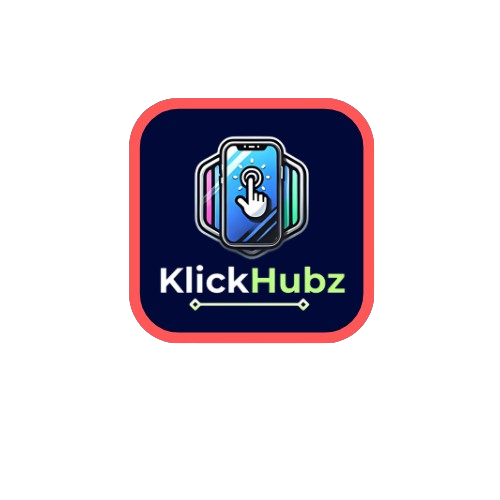Web Development Trends: How AI and Automation are Changing the Industry

The web development industry is rapidly evolving, driven by advancements in Artificial Intelligence (AI) and Automation. These emerging technologies are reshaping how websites are designed, developed, and maintained, leading to faster, more efficient, and user-centric solutions. Businesses and developers who embrace these trends are gaining a significant competitive edge. Let’s explore how AI and automation are changing the web development landscape.
1. AI-Powered Website Builders
AI-driven website builders, such as Wix ADI and Bookmark, have revolutionized the way websites are created. These tools use artificial intelligence to design entire websites based on user preferences, goals, and content inputs. By analyzing industry trends, visual aesthetics, and functionality needs, AI systems can generate professional-grade websites in minutes. This eliminates the need for extensive coding knowledge, making web development accessible to small businesses and individuals.
2. Enhanced User Experience (UX) with AI
AI is transforming user experience design through personalization and predictive analysis. By leveraging user data, such as browsing patterns and preferences, AI can create customized experiences for visitors. Features like chatbots, AI-driven recommendations, and dynamic content adjustments ensure a more engaging and responsive user journey.
For example, AI chatbots powered by natural language processing (NLP) can handle queries in real time, improving customer satisfaction while reducing human workload. Similarly, AI tools analyze behavior to recommend products, content, or services, enhancing user interaction and conversions.
3. Automation in Coding and Development
Automation is streamlining the development process by reducing repetitive and manual coding tasks. Code generators and AI-assisted programming tools, such as GitHub Copilot and Tabnine, use machine learning to write and suggest code snippets. These tools enable developers to write cleaner, error-free code at a faster pace, allowing them to focus on more complex and creative tasks.
Automation frameworks like CI/CD pipelines also ensure efficient testing, deployment, and debugging, enhancing the overall development cycle.
4. AI-Driven Testing and Debugging
Testing is a critical part of web development, and AI is playing a major role in improving the accuracy and efficiency of this process. AI-powered testing tools, such as Selenium and Testim, can identify errors, bugs, and vulnerabilities faster than manual testing. These tools analyze patterns, predict failures, and automate repetitive tests, ensuring that web applications perform optimally across different devices and browsers.
AI can also assist in predictive debugging by identifying potential areas of failure before they impact the live site.
5. Automated Content Management Systems (CMS)
Content management systems like WordPress and Drupal are now integrating AI to improve website functionality and content optimization. AI tools can automatically format, edit, and suggest SEO-friendly content, ensuring that websites stay relevant and visible in search engine results.
For example, AI-driven plugins analyze keywords, meta tags, and user behavior to enhance website performance, ensuring content meets audience expectations.
6. Voice Search and AI Integration
Voice search has become a growing trend, with tools like Google Assistant, Alexa, and Siri leading the way. Developers now optimize websites for voice search using AI-powered speech recognition tools. This shift has pushed for voice-responsive web design, ensuring websites remain user-friendly in a voice-first world.
7. AI for Security and Threat Detection
Web security is a top priority, and AI is revolutionizing how threats are identified and mitigated. Machine learning algorithms detect anomalies in real time and can predict potential cyberattacks. By automating threat detection, AI helps developers secure websites and applications, protecting sensitive user data.
8. Progressive Web Applications (PWAs) with Automation
AI and automation have significantly contributed to the rise of Progressive Web Applications (PWAs). These applications combine the functionality of a native app with the accessibility of a website, offering faster load times, offline capabilities, and smoother user experiences. Automation tools simplify the deployment and updates of PWAs, reducing time and cost.
Conclusion
AI and automation are no longer futuristic concepts—they are transforming web development in real, impactful ways. From AI-powered design tools and personalized UX to automated coding and enhanced security, these technologies are streamlining processes, improving efficiency, and elevating the user experience.
As web development continues to evolve, businesses and developers who adopt AI-driven tools and automation solutions will gain a clear advantage in a competitive market. Staying ahead of these trends will not only save time and resources but also ensure the creation of smarter, faster, and more reliable web applications.




3 Comments
Courtney Henry
August 7, 2023We denounce with righteous indignation and dislike men who are so beguiled and demor alized by the charms of pleas ure of the moment.
Albert Flores
August 7, 2023The intruders chased the girl in the house and threatened her when she hid from them, according to the PSNI to Limavady Facebook page.
Eleanor Pena
August 7, 2023It’s no secret that the digital industry is booming. From exciting startups to need ghor fore global and brands, companies are reaching out.